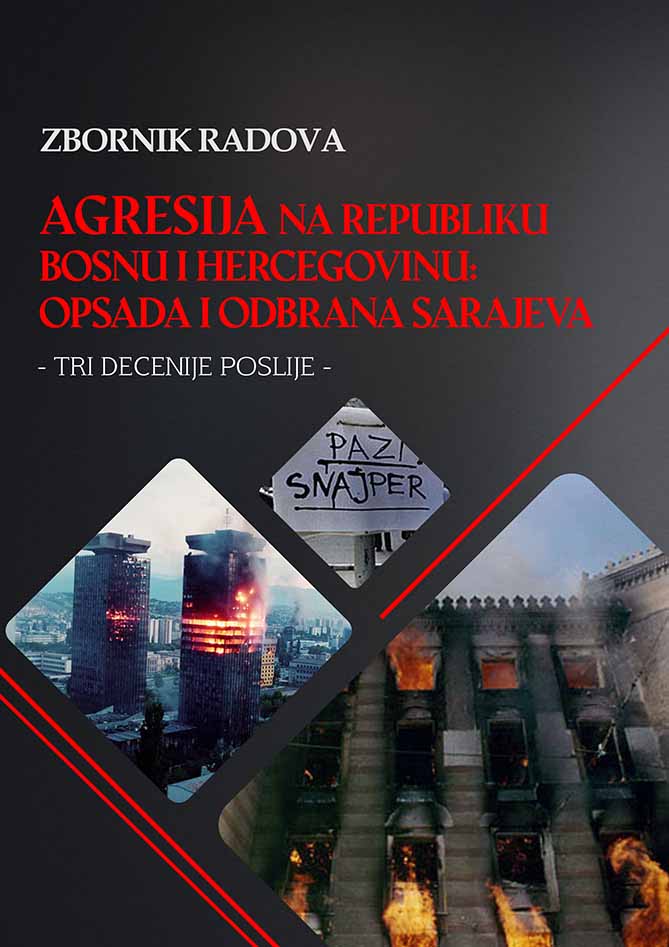STVARANJE PARADRŽAVE BOSANSKIH SRBA: IDENTIFIKACIJA „ISTORIJSKIH NEPRIJATELJA” I ETNIČKO RAZDVAJANJE STANOVNIŠTVA U RATU PROTIV BOSNE I HERCEGOVINE (1991‒1995)
CREATION OF PSEUDO-STATE OF THE BOSNIAN SERBS: IDENTIFICATION OF THE “HISTORIC ENEMIES” AND ETHNIC SEPARATION OF POPULATION IN THE WAR AGAINST BOSNIA AND HERZEGOVINA (1991‒1995)
Author(s): Sead Selimović
Subject(s): Military history, Political history, Studies in violence and power, Transformation Period (1990 - 2010), Inter-Ethnic Relations, Peace and Conflict Studies
Published by: Institut za istraživanje zločina protiv čovječnosti i međunarodnog prava Univerziteta u Sarajevu
Keywords: Bosnia and Herzegovina; pseudo-state of Bosnian Serbs; historic enemies; ethnic separation; Bosniacs; Croats, Serbs; international community; war crimes; Dayton Agreement;
Summary/Abstract: The Bosnian Serbs have hoped, until late 1991, that Yugoslavia would prevail, but once it was clear that this goal could not be achieved, they have changed their attitude and began with the creation of their own sovereign Serb entity in Bosnia and Herzegovina (pseudo-state), with its political, civilian, and military structures. The Bosnian Serb leadership presented, in their speeches, Bosniacs and Croats as “historic enemies of the Serbs” to justify their territorial tendencies in the territory of Bosnia and Herzegovina, which they considered “historically Serb territory”. Strategic objectives of the Bosnian Serb leadership made the key element in the military strategy of the so-called Republika Srpska Army, namely the creation of the pseudo-state Republika Srpska. Statements and speeches of Bosnian Serb leaders suggested that they supported and advocated the capturing of the territory, previously conquered militarily by the “Serb forces”. Bosnian Serb leadership was aware that the policy of ethnic cleansing would result in violence, given the fact that the population of the Republic of Bosnia and Herzegovina was so mixed. And yet, they continued with that policy. In his speeches, statements, and announcements, Radovan Karadžić would blame Bosniacs and Bosnian Croats for separation of population, and he argued that the Bosnian Serbs did not try to make “ethnically cleansed state”. These statements and announcements served for purpose of creating one version, intended exclusively for the international community, based on which Bosnian Serbs would not be guilty for separation and resettlement of population. Public statements often contravened their plans for ethnic separation. Radovan Karadžić and Bosnian Serb leadership continued to talk, in 1994 and 1995, about the removal of Bosniacs and Bosnian Croats from the state they had created and permanent importance of unification of all Serb states. Up until 1995, Bosniacs and Bosnian Croats were still shown as “historic enemies” of Bosnian Serbs and their (pseudo)state.
Book: AGRESIJA NA REPUBLIKU BOSNU I HERCEGOVINU: OPSADA I ODBRANA SARAJEVA – TRI DECENIJE POSLIJE –
- Page Range: 53-82
- Page Count: 30
- Publication Year: 2023
- Language: Bosnian
- Content File-PDF

